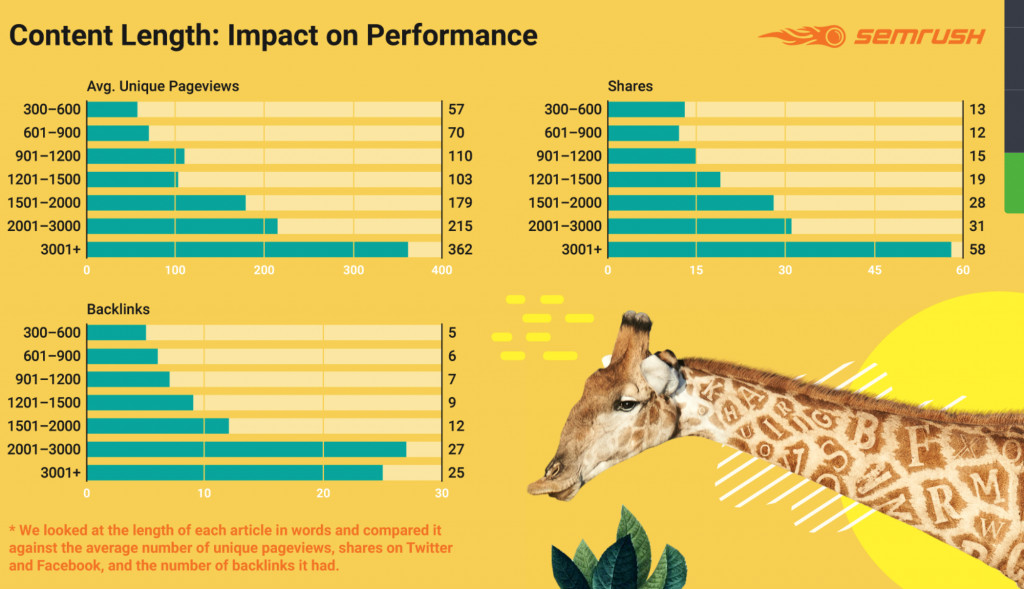Maximum Number of Words in an Article
Is there a cap on the maximum number of words you can put in an article?. For an article to be featured in needs to fall in the 700-1250 words range, but how far beyond that range can you go?.
There are no upper limits as far as I know - I for example have several articles ranging from 3000 - 9000 words and they do very well but these are exceptions. On average the figures you quote are good enough but you should also take into account the subject matter. Some subjects demand more words, others not. However many words you use try and make sure the article is an evergreen.
Thanks,
I was writing an article, then I realized it had reached 3000 words, then I decided to turn it into two articles. I published the first part and continued with the other half, unfortunately I reached 3000 words again on the other half, so I got worried if I was exceeding the maximum word count on articles.
And yes it is true, some subject matter does require more words, it is hard to summarize an article with a lot of statistics and figures.
Thanks for the feedback.
I just saw the latest HubPages Weekly. Congratulations!!!
Thanks, paradigmsearch.
Unfortunately, I went to check Hubpages Weekly, I still don't get what the congratulations is about.You are the featured new author at the bottom of the page. More HP members should be clicking your profile and checking out your work this week.
Please assist me with a link, I honestly have no idea how to go there. The bottom of my feeds is an endless refresh of Hubber activities.
Sorry I already deleted mine. It is always in my email, the account that I use for Hubpages stuff. If you are not getting it write to the HP team and tell them you want to get a weekly copy.
HP also posts it online. It's at https://hubpages.com/about/newsletter/2020-02-19

HubPages did a lot of research on the ideal length for online articles and after a lot of number crunching, came up with the range of 700 - 1250 words being ideal. I definitely agree with that. Personally, if an article on any platform is longer than 1,000 words, I either skip it or skim. Maybe it's my old eyes, but reading online for any length of time is a strain. I know that there are authors on HubPages that write thousands of words and get good traffic, so I think that the length of articles depends on the author and the topic. Just keep in mind that a lot or research went into determining that range of 750 - 1250 words. If I had a topic that took more than that, I would split it up into more than one article.
In order to make it easier for my readers to skim (because I agree that a long article is much too much for most people) I am trying to include a modified table of contents on the top of my new articles. That way, if it is 3000 words and they just have one thing that they need answered, they can go down to the appropriate capsule fast. I am not trying to split any of them up, and my recent articles that are long, with a table of contents, are attaining the snippet or at least the first page very fast.
If you have a minute check out my new jaundice article. It has some new info there that is helpful to veterinary staff (a list of dog breeds affected) but it also has a lot on home care, which vet techs would not need to read. It is over 3000 words.Thanks, Dr Mark
I also considered putting a modified table of contents, but I haven't even fully mastered other Hubpages tools, so that would be a step too far.
I'll try to go through your article, and see whether I can apply some of the structures you used.It takes more effort than most of the things around here but I think it is worth it. lobobrandon has an article on SEO practices for hubpages article and there are details there. https://hubpages.com/community/HubPages … -SEO-Guide
Thanks, OldRoses,
I agree, when an article is too long I also tend to skip most parts, but certain articles are supposed to be long because of the subject matter they are addressing. I tend to think informative articles can be summarized easily, but educational articles require additional sources and references which adds to the word count.
Longer content does better than shorter, generally speaking.
https://www.semrush.com/blog/anatomy-of … -articles/
The 1250-word recommendation is a bare minimum and definitely not ideal.I think this was true about 5 years ago. As we both know, things change fast around here. I think articles this short are not moving to the top of the rankings anymore, but there are still plenty of short older ones.
Thanks, EricDockett
I agree to some degree, my articles that are doing very well have all exceeded the recommended word count. Other factors contribute too, but a long article is a good start.
I am here to get some advice about how to do articles. I typically write in the area of novels, short stories, plays and skits; but not sure what the companies look for when you present an article.
You should review the information in the Learning Center (Help button, top right). It will tell you everything you need to know to write and format articles that will be published on HubPages.
Hello mwjoseph,
I believe seasoned Hubbers here are better suited to advise you, I am equally trying to find my feet.
HubPages used to have a checking gadget for creating stellar hubs which recommended a minimum of 1250 words. I still follow those recommendations but obviously it's the content of a well researched article that determines its size. It has to be informative and interesting enough for the reader to stay on the page to the very end.
Thanks for the link Eric. I took the liberty of printing the following illustration from it.
My 2 best performing articles have 2,694 and 1,333 words respectively.
The rule of thumb is to try and say what you have to say in the most concise manner possible without word stuffing.Cool! That link was originally forwarded to me by an HP editor, btw. However, this isn't the only study I've seen that correlates word count and ranking.
I think the word count is sort of beside the point. Articles that have a lot of depth and thoroughly answer all of the readers questions just tend to be longer.Thanks, Sue Adams
I agree, the article has to be informative and interesting enough for the reader. I like to look for specific bits of information in an article, so when an article is short I sometimes end up not finding what I am looking for. A longer article usually has a wider range of bits of information, I don't have to read the whole article, I just need to target the information am looking for.
I've written a lot of long forms over the last 2 years and about 75% of these are my best performers. What gets me monethly payout, in other words. Vice versa, I also have a couple of lengthy that are down there. I go into fits when these get more than 10 views a day.
To give an indication, 9 out of 10 of my best performers have more than 2000 words. My best performer for over a year has 3000 words. My second best has a whooping 7000 ++ words; my longest ever. My third best has 4K words, and this ranks top in a competitive subject.
Having thought about it, I concluded:
- Long forms are beneficial for niche topics catering to hobbyists, geeks, etc. They do even better when there is minimal competition. Logic would tell you that people who can't find information for the things they love would adore an extensive write-up. It does wonders for your bounce rate too.
- Long forms really suck for subjects where people are looking for a quick fix. For example, business and money making articles.
- For technical write-ups, which I don't do BTW, I believe it depends on target audience. Some readers will appreciate very detailed write-ups. Others will just surf away. It all hinges on who you are targeting. For example, Neil Patel obviously target people who wants to go deep in with his SEO articles. They are always very, VERY longCouldn't agree more or less. Certain article types require a concise word structure, other types require a lengthy structure.
And yes, the bounce rate is also a major advantage when it comes to longer articles. I usually visit longer articles again and again because I think I might have missed some information.
Related Discussions
- 10
Maximum number of words
by jondav 15 years ago
Is there one?Or is there a maximum number of capsules that can be added to any given hub?
- 24
Is it preferred to have an article of about 2000 word count?
by Ashraf Sheera 5 years ago
Hi there,I was preparing a hub for publishing. After I finished my article, it has slightly more than 2000 words in total. So my question is, whether this article has the potential for getting more traffic or not?
- 77
Why are hubbers ignoring the substandard warning? Suggestion.......
by Carolee Samuda 13 years ago
I was hub hopping and had to flag a few hubs for being substandard (word count). One hub had exactly 10 words and 2 photos. There should be a way the system prevents you from publishing a hub like that except if it's in the poetry section.
- 14
What do you think is the optimal number of words for a hub?
by Victoria Lynn 14 years ago
I've seen people saying that they are writing longer hubs and getting more traffic. I've always heard at least 300 words up to 800 or so. Have you found an optimal number to shoot for?
- 34
Change Amazon rule - increase the number of words per capsule
by Kate Swanson 11 years ago
Janderson just submitted some great suggestions on this thread:http://hubpages.com/forum/topic/126313#post2666393and I think this one deserves a suggestion post on its own.We're always being told to be discriminating with our Amazon capsules - less is more, they must be directly related, etc...
- 41
how many words must be written at least in the hub ?
by omar ibrahem 10 years ago
how many words must be written at least in the hub ?















